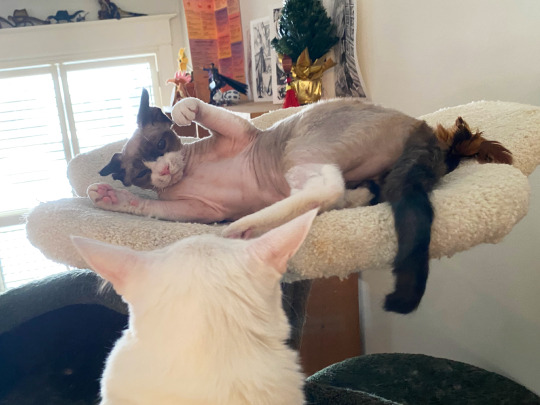Text
"touch grass" uh please get with the times, we are touching natural native plant gardens now, gently to not disturb the pollinators
3K notes
·
View notes
Note
hey, sorry to bug. Would you happen to have a post somewhere, or just maybe a list off your head, of red flags to look for when we see alleged 'wildlife rehabbers' online? ive been following SaveAFox for a few years now and I never noticed that anything weird was going on.. (but also I never did a deep dive into her practice so that part is on me)
I don't know if there's a list anywhere.
For wildlife rehabbers, some red flags to look out for are:
rehabbers posting photos of themselves cuddling, petting or playing with rescued animals. Good rehabbers keep contact with orphaned/injured/sick wildlife to an absolute minimum
rehabbers keeping wildlife in their homes. While very young orphans occasionally need to be kept in a home for feeding every few hours, good rehabs will not post pictures of this kind of thing. Older babies or adult wild animals should never be inside someone's home and should always be kept in a suitable enclosure/cage.
rehabbers who allow wild animals to interact with their domestic pets is a huge red flag
rehabbers that keep animals alive that are clearly suffering or have little to no chance of recovering and/or returning to the wild. A good rehab needs to know when it's in the animal's best interest to euthanise and not prolong treatment.
rehabbers who encourage or don't condemn things like keeping wild animals as pets and feeding wild animals
These are just a few things to look out for. Exotic animal rescues can be harder to tell if they're good or not, but things to avoid are rescues that encourage/don't condemn keeping wild animals as pets, rescues that buy animals from fur farms and exotic breeders, rescues that don't educate on why these animals shouldn't be pets, rescues that have close contact with dangerous animals etc.
620 notes
·
View notes
Text
For the most part I have filled out the SAF spreadsheet, and I believe it to be almost completely accurate- especially the stuff from the last 5 years. There are a few little things I still need to double check, and links I need to add, but I'll get to them. If you like, you can actually help me with that:
PLEASE continue to ask me any questions about her animals that the spreadsheet doesn't answer, and request links if there is any information you don't find to be very credible! It will help me to find the gaps I need to fill in, and keep me motivated to continue working on this project (which I do actually enjoy)
Everything here is public information that anyone could find- I have just compiled it. Feel free to use it for any purpose.
I will continue to update it with the new animals every couple months or so.
Do not harrass anyone you find through this spreadsheet or by following the links.
Green: Currently an active member of SAF
Light blue: Transferred/rehomed
Red: Dead/lost
Dark blue: Released rehab animal
Yellow: Unsure
Magenta: Someone else's pet
Orange: Other
Not coloured: Research incomplete
(I promise that isn't actually colour coded idk why the preview is showing the colours)
100 notes
·
View notes
Text

Hey don't cry, okay? We just found Attenborough’s long-beaked echidna, a species thought to be extinct for the past 60 years.
28K notes
·
View notes
Photo
Thought this was a Criminal Minds episode directed by MGG










Dave Made a Maze (2017)
351 notes
·
View notes
Text
we need to be doing everything in our power to acquire and consume tiramisu
20K notes
·
View notes
Text

unfortunately, Belphie does look his cutest when he's being a piece of shit
8K notes
·
View notes
Text
Just as a note to any aspiring biologists and/or casual biology fans: please do not be intimidated by 'professional' biologists! We are all huge nerds! I've just spent 3 days surrounded by experts in my field, and given half the opportunity they will gladly gush about their research/animals, and answer any and all questions with probably more information than you ever wanted to know. If you ever get a chance, I highly encourage you to attend conferences, seminars, or talks in your area-- your local biologist will love you, and will likely even have opportunities for you to volunteer with them if that's something you're into!
2K notes
·
View notes
Text

the color signatures of various elements when ignited
FB image credit: Ceres Science
20K notes
·
View notes















